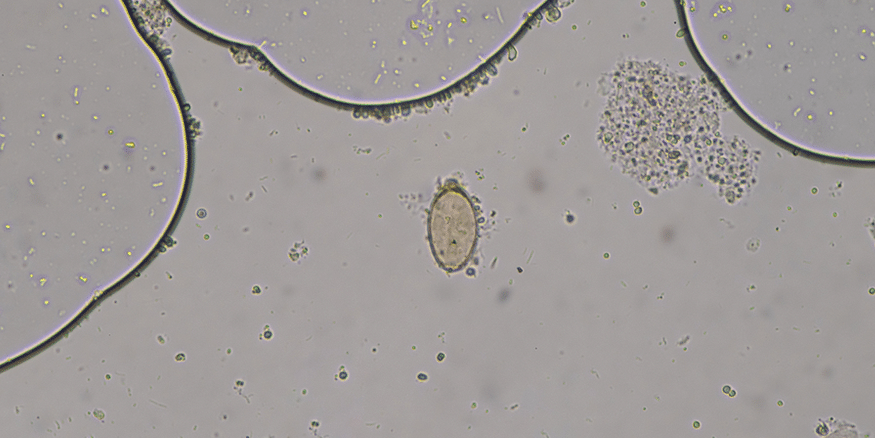
Worms and Inflammatory Bowel Disease
Have we become too clean?
The prevalence of helminths – harmless minute parasitic worms – in our population has been drastically decreasing since the middle of the 20th century. Historically, humans co-existed with these creatures in what researchers are now coming to believe to be an essential immune regulatory relationship. Scientists wonder if we have become too hygienic, removing natural harmless species that may, in fact, form a pivotal role in our health. The ‘too clean’ theory has arisen in part due to the correlation between exposure to worms from childhood in less developed parts of the world and the corresponding low incidence of inflammatory bowel disease. However, in the hygienically focused developed world there has been an increase in the persistence of several immune diseases, including inflammatory bowel, asthma, and type-2 diabetes. Since inflammatory response diseases involve an overactive immune system, some researchers believe that our bodies are designed to co-exist with parasites. For an individual without a parasite there is nothing to act upon except itself, resulting, they believe, in digestive diseases such as Crohn’s disease and ulcerative colitis.
At the Digestive Diseases Week Conference in New Orleans in May 2004, Dr. Joel Weinstock, and his fellow researchers presented data that involved introducing one variety of these worms into the digestive tracts of IBD patients. They used a species of helminth, Trichuris suis, a nematode that colonizes pigs, commonly known as the pig whipworm. Swine whipworms can infect humans but do not develop to mature adult worms.
Fifty-four ulcerative colitis patients and 29 Crohn’s disease patients with active, long-standing, persistent disease ingested a drink containing 2,500 pig worm eggs every 3 weeks. At the end of the trial, 47.8% of the ulcerative colitis patients had responded to the treatment, while 72.4% of the Crohn’s disease patients demonstrated remission. Symptoms such as abdominal pain, bleeding, and diarrhea disappeared.
Europe and England have embraced this idea, but it’s been neglected in North America. There are certainly many opinions on it, but very little scientific data yet to lend validity. “A lot of researchers couldn’t believe this treatment was effective, but people are always sceptical when confronted with new ideas,” explained Weinstock, the lead researcher.
“We found that this unique therapy was well tolerated and produced a substantial improvement in Crohn’s disease patients,” said Joel Weinstock. “These results strengthen the notion that the de-worming of the population is related to the increased frequency of Crohn’s disease in industrialized countries. It now may be possible not only to safely treat, but also prevent inflammatory bowel disease by exposing children to natural biological agents lost from their environment.”
In a PatientCommunity.com interview with Dr. Weinstock, he explains his theory further. He chose to use the species Trichuris suis, because it is genetically similar to the worm found in humans, Trichuris trichiur, but has these advantages:
- Trichuris suis can be produced in pathogen-free pigs under ultra-clean conditions. The worms are then taken from the pigs – which cannot be done with humans – and then grown in a test tube. Those worms then produce eggs, so they are not working with pig stool, but simply pure eggs. These eggs are then processed to render them bacteria and virus free. The eggs are very durable – they are extremely stable, and can sit in a refrigerator for a year
- They are essentially luminal agents – they live in the gastrointestinal tract, and do not get into the blood stream, the liver, or any other organs, tending to colonize in the ileum and colon.
- These worms do not stay in humans for long because we are not their natural host, and they are eliminated within a few weeks. These worms never reach adulthood, they never produce eggs, therefore there are no eggs to spread into the environment, or to other people. Even if they did produce eggs, these could not be spread to people around you and cause infection by hand and mouth, as they require an eight-week incubation period in soil.
- There is an effective drug to get rid of this worm and if it seems to be doing something wrong, you take one dose of this agent and you are worm-free.
- There are no known diseases associated with exposure to these organisms. The natural host of the worm is the pig. Around the United States, there are many pig herds that carry this organism, so farmers have been exposed to these for a long time. Therefore, the safety level seemed to be extremely high, and this is why the human investigation committee gave permission for this study. Dr. Weinstock adds, “We have treated people beyond a year and a half – almost two years – and we have seen no ill effects of chronic use: no liver abnormalities, no nausea, no abdominal pain, no reactions.”
So, could the cure for IBD really be as close as the farm? Only time will tell.

